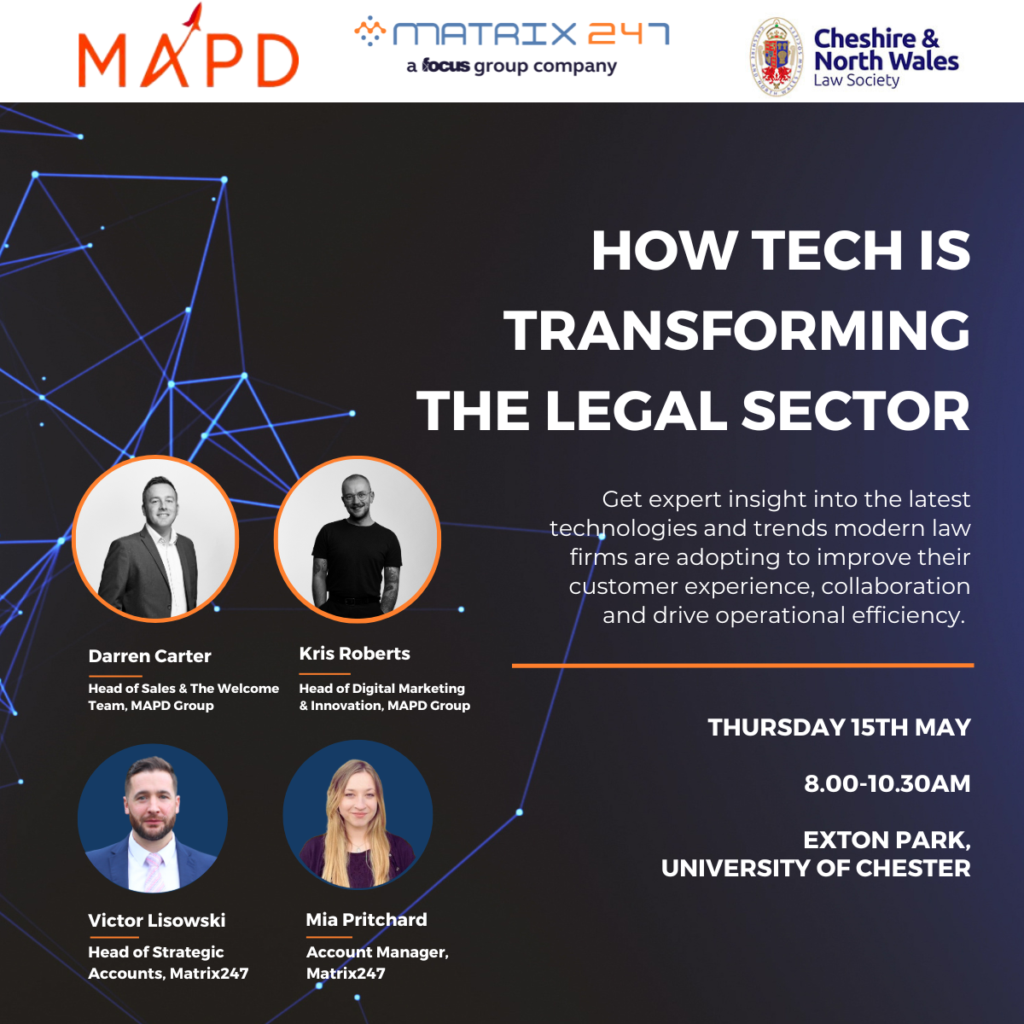It’s time to ‘smarten’ up to AI

From smart phones to smart speakers, it seems we have all ‘smartened’ up to the importance of Artificial Intelligence (AI) in our daily lives, and with its continued development, sectors have adopted such methods to help drive their performance.
AI saves on 3 key components… time, money, and resources, and for businesses and firms, these are highly advantageous reasons for the application of AI and machine learning, as it acts as an additional pair of virtual hands in aiding them.
What exactly is AI?
Raise your hand if you think of The Terminator or one of those droids from Star Wars when you hear the term AI?
Whilst technology is rapidly evolving, I think we are still a while away from killer robots (hopefully!), for now, AI is any technology with human-like intelligence which learns, understands, responds, and solves problems.
You search for something on Google… AI, you use a GPS to give you directions… AI, such technology is built to make your life easy, both in your personal and professional life.
AI covers a broad spectrum, but here is a little snapshot of some of the more important ones:
- Limited Memory AI: Known as the most popular form of AI, it uses memory to learn and improve its responses including chatbots and virtual assistants.
- Reactive AI: This has no memory and has no ability to learn or improve, as it responds purely to different stimuli, including predictive text in search engines or on smartphone keyboards.
- Artificial Superintelligence (ASI): Set to become the most capable of all AI, it replicates the intelligence of humans, has a greater memory, faster data processing and can analyse data and make decisions.
Limited Memory AI
As mentioned, Limited Memory AI learns from the past and builds experiential knowledge by observing actions or data. This type of AI uses historical, observational data in combination with pre-programmed information to make predictions and perform complex classification tasks.
An example of Limited Memory AI can be self-driving cars as it uses the data collected in the recent past to make immediate decisions.
Tesla, the electric car manufacturer, uses revolutionising technology such as sensors to identify civilians crossing the road, steep roads, traffic signals to make better driving decisions and help prevent any future accidents.
In essence, these sensors help to ‘read the road’ and adjust when needed as it understands and interprets incoming data… but would you always want to trust the data of another to determine your decision making?
As the term says, Limited Memory AI is… limited, the most common weakness is that even with its smarter technology, it can’t replace human intelligence and emotion, machines are rational but don’t have any emotions or moral values.
Reactive AI
Reactive AI is the most basic but still quite useful artificial intelligence because it reacts to currently existing conditions, as its name suggests.
It doesn’t store memories or use past experiences to determine future actions and performs the simple operations without the need to learn anything through reacting to some input with some output.
A famous example was when Deep Blue, a supercomputer created by IBM in the 1980s, competed and ultimately won a chess match against reigning world champion Garry Kasparov… yes, a computer beat one of the greatest chess players of his time!
These methods do improve the ability of AI systems to play specific games better, but they can’t be easily changed or applied to other situations.
These computerised imaginations have no concept of the wider world – meaning they can’t function beyond the specific tasks they’re assigned and are easily fooled.
Artificial Superintelligence (ASI)
Widely regarded as the final stage of AI development, Artificial Superintelligence is a software-based system with intellectual powers beyond those of human-level capabilities in a broad range of areas.
The development of Artificial Superintelligence will probably mark the pinnacle of AI research, as it will replicate the multi-faceted intelligence of human beings, will be exceedingly better at everything they do because of overwhelmingly greater memory, faster data processing and analysis, and decision-making capabilities.
Experts believe we are decades (maybe even centuries) away from such advanced technology, but even if that was the case, it is hard to picture what the world would look like when such solutions are developed.
Is AI really that beneficial?
Short answer… YES!
Whilst AI technology can be daunting, it certainly does not have to be complicated, and with a lot of people already welcoming it. These benefits include:
- Real-time Analytics: Gathering analytics and analyze them quickly, saving time for businesses and allowing them to delegate workers responsibilities to more important tasks.
- Business Process Automation: This gives the repetitive tasks to the machine, which allows staff to be more productive on other projects.
- Improved Data Security: Provides security options and detect things such as fraud attempts, any breaches in data as well as detecting viruses and spam.
- Natural Language Processing (NLP): Allows for the use of chatbots to enhance customer satisfaction and support.
Are there any limitations?
Have you ever typed something in on your smartphone, but your predictive text has automatically selected the wrong word or having to call for store assistance when you can’t scan an item at self-checkout?
Whilst AI is a great alternative and helping hand, we shouldn’t always rely on the hope that AI will solve everything in our lives or make tasks easier to do.
The limitation of AI is in the name, it’s Artificial, it doesn’t provide an authentic perspective of a certain task and it may reduce human error, but it can create errors of its own without realiszing, especially if it doesn’t meet the needs of the user.
Also, do you feel we’re losing that human connection that makes us all different? Take the workplace for example, there is no doubt that machines are much better when it comes to working efficiently but they cannot replace the human connection that makes the team.
Machines cannot develop a bond with humans which is an essential attribute when it comes to team management, and it never promotes creativity or ‘out of the box’ thinking as they can only perform tasks which they are designed or programmed to do.
AI is the future… but what does the future look like for AI?
AI is playing a pivotal role in our society, gone are the days where we would open an encyclopedia to find out about some interesting fact, now we have search engines who not just find the right results, but also determine exactly what we are looking for and recommend other search results.
We have Alexa telling us the weather, being your personal DJ and reminding you that it is your partners birthday!
As mentioned, we’re still far away from AI taking over the world, but as technology continues to evolve, we need to keep up with these advancements to benefit both our personal and professional lives.
AI is the biggest ‘business’ opportunity across all sectors, as such technology allows businesses to automate a variety of processes, free up employees’ time, and help improve productivity, achieving greater output at a lower cost.
And with the digital age comes the additional cyber risks, as businesses grow, the risk of cyberattacks exponentially increases, with online fraud, hacking, and data breaches becoming more prevalent today.
AI provides ‘Smart Cybersecurity’ features such as multi factor authentication, phishing detection, behavioral analytics, and prevention control measures that allow businesses to enter the digital age without the pressures of being virtually attacked.
If you are tech savvy, it would be wise to dive deep and learn as much as you can about interacting in the AI space.
If your skills lie elsewhere, it is important to recognise that AI will have a big impact, and to the extent of your abilities, you should try to understand the fundamentals of how it functions in different sectors.
AI is here to stay, whether we like it or not, and it shouldn’t be something to be afraid of! The best way to move forward is to be aware of and adapt to the new technology around us… AI included.
So, let’s all smarten up to smart technology together!




